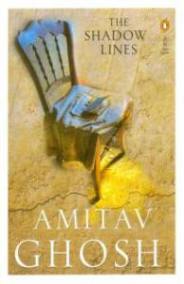The Rivered Earth
April 29, 2013 Leave a comment
by Vikram Seth | 120 Pages | Genre: Poetry | Publisher: Hamish Hamilton | Year: 2011 | My Rating: 9/10
Recital of the poem ‘Fire’ by Vikram Seth HERE
Vikram Seth has written 4 libretti for 4 musical performances conducted over 4 years (2006 – 2009). A mix of original work and translation, they draw from three cultures – Indian, Chinese, and European – and are set to music by the composer Alec Roth and violinist Philippe Honoré. Titled ‘Songs in time of war’, ‘Shared Ground’, ‘The Traveller’, and ‘Seven Elements’, each of these four librettos in this book is presented with a foreword that provides a backdrop for the particular work. Exquisite pieces of calligraphy by Seth, in Chinese, English, Hindi and Arabic, prefaces each text.
In the first libretto, Songs in time of war, most of the poems are set during a terrible rebellion in the Tang dynasty, which caused vast devastation and famine. In the second libretto, Shared Ground, Seth moves from the Tang Dynasty to the Stuarts, to Salisbury, England, to the very house where the idea of the book of libretti was first born. In a delightful poem titled Host he recounts his admiration for his favorite Anglican poet, George Herbert,
This deeply sensitive, appealing and seductive book about friendship, love, loss, drama, history, geography, literature and music is my Read of the Week.



